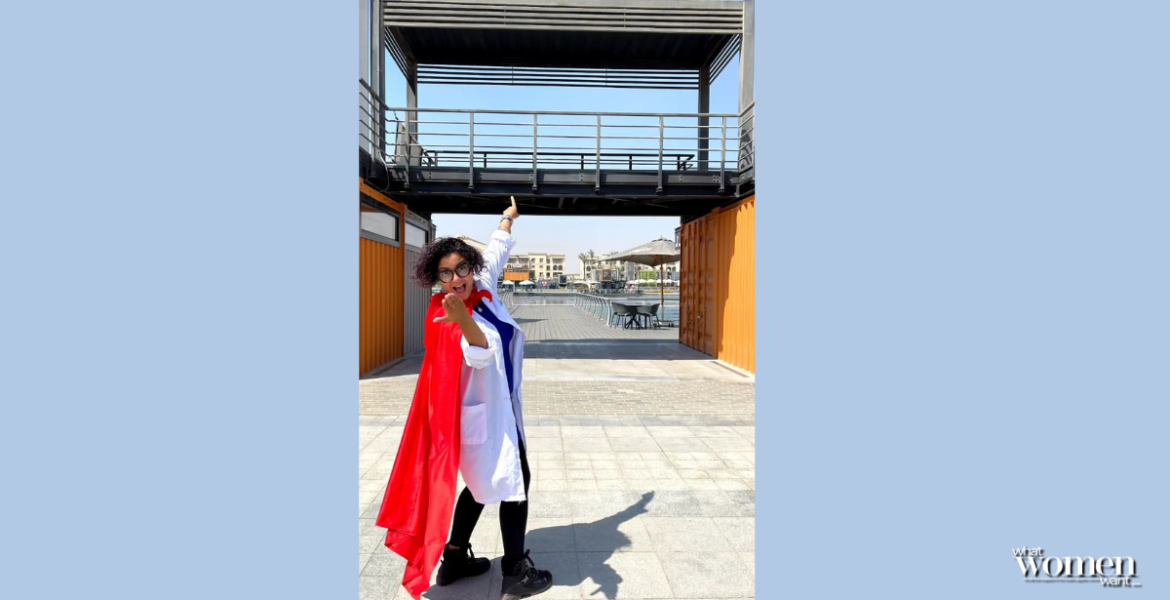Esraa Mohamed’s journey into education started when she was 16 when she became a co-teacher in an international nursery. She stepped into this career only because she wanted an easy summer job. Then she discovered that dealing with toddlers was an impossible mission, but all the same, she had found her passion. The journey continued for seven years. She then shifted her career for five years to operations. She ended up working at Orcas as a senior operation executive, and because she had free time, she also tutored Arabic to international school students. Now, with a firm grasp on English and French as well as Arabic, Esraa founded Super Abla, a platform dedicated to teaching Arabic in innovative ways. We sit down with her to learn more about it.
I aim to be an ambassador of Arabic who gives a positive image of how one of the most difficult languages around the world can be so interesting and easy
Tell us about Super Abla and what you aim to achieve through it.
Super Abla teaches Arabic through storytelling, gamification and modern usage of daily Arabic words through highlighting colloquial Arabic. I aim to be an ambassador of Arabic who gives a positive image of how one of the most difficult languages around the world can be so interesting and easy.
I used to memorize through dancing, singing and performing plays about the curriculum
You mentioned your own struggle in school because of inflexible teachers. How has this influenced the way you educate in Super Abla?
I used to memorize through dancing, singing and performing plays about the curriculum. I hated the curriculum, the dull novels and grammar rules. So, I have a tailored curriculum based on each student individually which works on enhancing their own weaknesses.
Students’ opinions should matter
What needs to change in our educational system for it to become more effective?
Students’ opinions should matter. It doesn’t make sense that the stories that used to be taught to us 20 years ago are still being taught today. Including drama and storytelling in explaining the lessons should be one of the methods as well. In addition to that, making sure that the teachers themselves are up-to-date with the kids’ needs and interests, in order to close the gap that is always found between the two generations.
In your experience, how can parents of struggling students help them voice – and solve – their school issues?
By constantly telling them that they’ve got their backs, supporting their choices and helping them to understand the error. By telling them to never say ‘I can’t’, but to say ‘I will try’ and the parents will always find infinite methods for explanations out there.
What are your future plans for Super Abla?
I dream of starting my own school, developing my own curriculum that could let everyone know how the Arabic language is interesting and rich.

